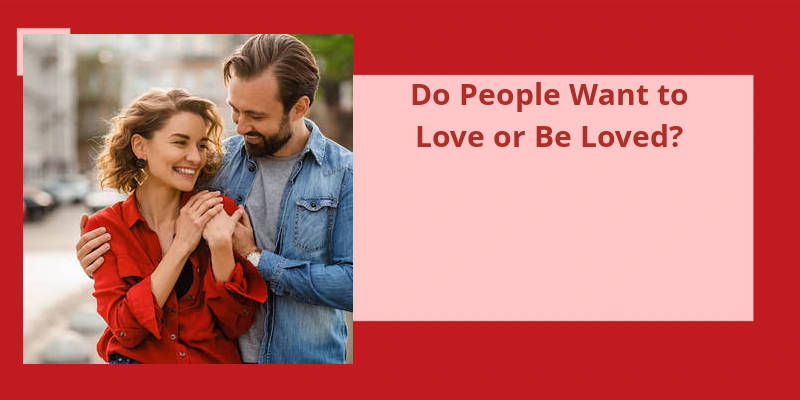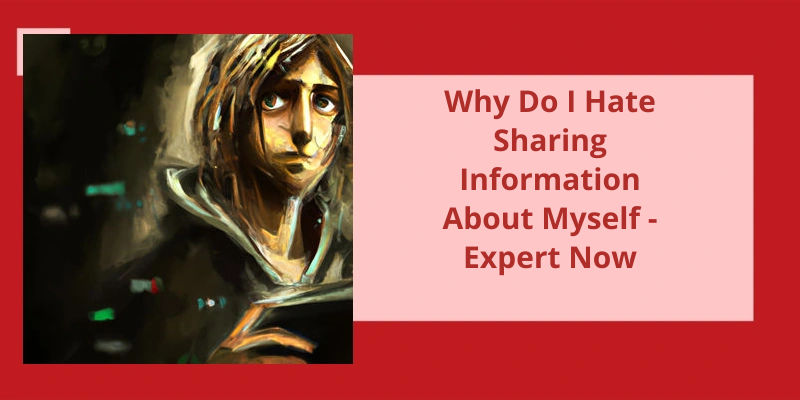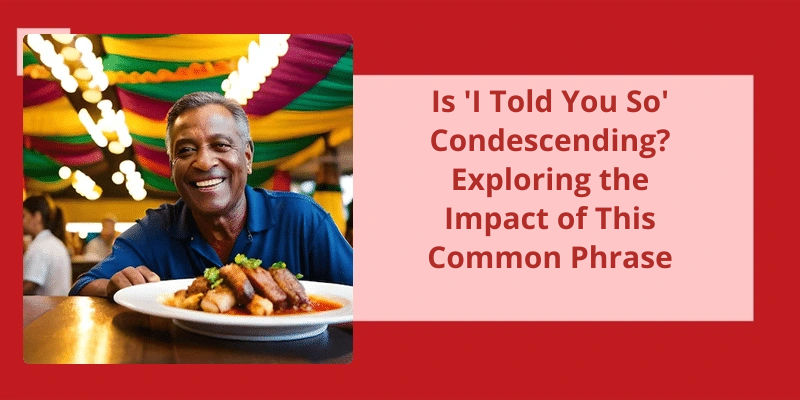The desire to love and be loved is an intrinsic aspect of human nature. Deep down, in the core of our being, we long for the warmth and affection that comes from connecting with another person on a deeply emotional level. Feeling loved and cared for isn’t only a source of comfort and reassurance, but it also plays a pivotal role in our overall happiness and well-being. The simple act of knowing that someone genuinely cares about us can bring a sense of security and contentment that’s unparalleled. However, this longing doesn’t solely revolve around receiving love, for the desire to love and care for others is equally as strong. It’s a fundamental need that’s hard-wired into our very being, a need that’s deeply felt and difficult to ignore. In the intricate tapestry of human connections, the act of giving love is just as important as receiving it, if not more so. So, when we ponder the question of whether people want to love or be loved, it’s important to understand that these two desires are intricately intertwined and can’t be separated. For it’s in the interplay between loving and being loved that true happiness and fulfillment can be found.
Is It True Everyone Wants to Be Loved?
Is it true that everyone wants to be loved? The answer seems to be a resounding yes. It’s an innate desire that transcends cultural boundaries and touches the very core of our humanity. Whether it’s a partner who understands us deeply, a child who looks up to us with adoration, or a friend who listens without judgment, the feeling of being loved is a fundamental need.
To be loved is to experience a sense of belonging, a connection that validates our existence. It brings a warmth and comfort that can’t be easily replicated. It’s a source of strength, resilience, and happiness. When we’re loved, we feel seen, accepted, and valued for who we truly are.
Yet, the desire to be loved isn’t limited to romantic relationships or familial bonds. It extends to all aspects of our lives. We crave the love and acceptance of our friends, colleagues, and even strangers. The simple act of a kind gesture or a helping hand can make us feel loved and appreciated. It reaffirms our place in the world and reminds us that we aren’t alone in our struggles.
However, it’s important to note that the desire to be loved doesn’t overshadow our capacity to love others. It’s a two-way street, where giving and receiving love go hand in hand. Loving others is equally important, as it allows us to connect on a deeper level and build meaningful relationships. It brings us joy, fulfillment, and a sense of purpose.
The Importance of Communication and Vulnerability in Expressing the Desire to Be Loved
- Clear and effective communication is essential for expressing the desire to be loved.
- Being vulnerable allows for genuine and authentic expressions of love and affection.
- Expressing the desire to be loved fosters emotional connection and intimacy in relationships.
- Effective communication about love helps avoid misunderstandings and conflicts in relationships.
- Vulnerability in expressing the desire to be loved can lead to deeper emotional connections.
- Being open and honest about the need for love can strengthen trust and emotional bond.
- Communication and vulnerability in expressing the desire to be loved promote healthy and fulfilling relationships.
- Expressing the desire to be loved allows others to understand and meet emotional needs.
- Open communication and vulnerability provide a safe space for expressing love and receiving love in return.
- Recognizing and communicating the desire to be loved is crucial for personal well-being and happiness.
Love and being loved are two sides of the same coin, intricately connected yet distinct in their nature. Love encompasses the deep emotions and sentiments felt by an individual towards another, in a selfless and caring manner. On the other hand, being loved encompasses the experience of receiving affection, care, and attention from someone who holds those sentiments for us. While love involves giving, being loved involves receiving, both essential elements in the complex tapestry of human relationships.
What Is the Difference Between Love and Be Loved?
When we discuss the difference between love and being loved, we delve into the intricate dynamics of human relationships. Love, at it’s core, is a profound emotion that encompasses affection, care, and attachment towards another individual. It’s the beautiful feeling that ignites within us and drives our actions towards nurturing and supporting someone else. Love is selfless, often putting the needs and happiness of the person we love before our own.
The Role of Reciprocity in Love and Being Loved.
Reciprocity plays a crucial role in both loving someone and being loved. In relationships, people often desire mutual affection and care. They want to give and receive love in equal measure. The desire to be loved is often tied to a basic human need for acceptance, validation, and emotional connection. Similarly, loving someone brings joy and fulfillment as it allows individuals to express their emotions and build a meaningful bond. Ultimately, people desire both to love and be loved, as reciprocity fosters a healthy and balanced relationship.
Source: What’s the difference between love and to be loved?
However, loving someone is a conscious choice and an active process. It requires selflessness, understanding, and effort. When you love someone, you prioritize their well-being and happiness over your own. While being loved can bring temporary comfort, it’s through loving others that we truly find fulfillment and experience the true essence of love.
Is It Easier to Love or Be Loved?
Is it easier to love or be loved? This is a question that’s plagued humanity for centuries. However, when analyzing this topic, it becomes evident that the easier path is to love.
To be loved simply means that you don’t love yourself and you want to rely on someone elses affection to feel complete. It suggests a lack of self-confidence and self-worth. On the other hand, loving someone requires you to open your heart and show vulnerability. It takes courage to love someone unconditionally, to put their needs before your own, and to accept them for who they truly are. This act of love requires strength and a genuine desire to make someone else happy.
Furthermore, the pursuit of being loved by someone can lead to chaos in relationships. When everyone is solely focused on finding someone to love them, it creates a sense of desperation and neediness. Rather than building healthy and authentic connections, people may settle for less than they deserve or enter into toxic relationships out of fear of being alone. This pattern perpetuates a cycle of unhappiness and unfulfillment.
Love is a profound connection that goes beyond self-interest, encompassing a deep sense of empathy and compassion. It brings purpose to our lives as it enables us to extend beyond our own boundaries and prioritize the well-being of others. Love drives us to nurture and support the growth of those we care about, making their happiness and struggles a part of our own. It’s essence lies in the notion of selfless care and genuine concern for the existence and welfare of another human being.
What Is the Purpose of Love in Our Lives?
Love is a powerful force that’s the ability to transform individuals and societies. It’s the power to heal wounds, mend broken hearts, and bring joy and happiness into our lives. But what’s the purpose of love? Is it something we seek for ourselves, or is it something we give to others?
One perspective is that love is a selfless act of giving. When we love someone, we’re putting their needs and desires ahead of our own. We want to see them happy, and we’re willing to make sacrifices to ensure their well-being. This act of selflessness not only benefits the person we love, but also brings us fulfillment and satisfaction.
On the other hand, some argue that the purpose of love is to be loved in return. We all have a need for love and affection, and receiving love from others can provide us with a sense of validation and worth. When we’re loved, we feel seen, understood, and accepted for who we are. This can give us the confidence and support we need to navigate lifes challenges and pursue our dreams.
The Different Types of Love and Their Significance in Our Lives (e.g. Romantic Love, Familial Love, Platonic Love)
- Romantic love
- Familial love
- Platonic love
When it comes to love and relationships, gender dynamics often come into play. Surprisingly, a recent survey revealed that men and women have different preferences when it comes to being loved or loving their partners. While a majority of men emphasized the importance of equal love exchange, a significant number of women expressed a preference for being loved more. Let’s delve deeper into these differing perspectives and explore the reasons behind them.
Do Men Prefer to Love or to Be Loved?
When exploring the question of whether men prefer to love or be loved, it’s important to consider the nuances of gender dynamics and societal expectations. A study conducted on this topic shows that when asked about their preference in a relationship, a majority of men, totaling 56.2%, indicated that they can only truly accept a situation where both partners choose to love each other equally. This suggests that men desire a mutual exchange of affection and value emotional reciprocity in their relationships.
On the other hand, when examining the responses of women, 51.2% indicated a preference to be loved more. This inclination could be influenced by cultural norms that often place women in a passive and receptive role, expecting them to be the recipients of love and care. However, it’s important to note that this preference may not be universally held by all women, as individual experiences and perspectives can greatly vary.
It’s worth considering how societal expectations and stereotypes shape these responses. Traditional gender roles often dictate that men should be in control and take the lead in relationships, including the expression of love. This may explain the higher percentage of men who desire equal exchange of affection. In contrast, women might feel more comfortable being the object of affection, potentially due to societal expectations of femininity.
While these statistics offer insights into preferences, it’s crucial to recognize that individuals are complex, and their desires can’t be reduced to a singular preference. Love and relationships are multifaceted, and personal experiences and expectations greatly influence them. Ultimately, the desire to love and be loved is a universal human longing, transcending gender. It’s the balance and reciprocity of love that truly sustains meaningful and fulfilling relationships, regardless of gender.
The Role of Societal Expectations and Cultural Norms in Shaping Preferences for Love and Being Loved
The role of societal expectations and cultural norms plays a significant role in shaping people’s preferences for love and being loved. Society often defines and promotes certain ideals and expectations regarding romantic relationships, which influence individuals’ desires and perceptions of love.
For example, some cultures prioritize the act of loving others and emphasize the importance of selflessness and sacrifice in relationships. In these societies, people may feel a strong desire to express their love for others and derive fulfillment from being able to give and care for their partners.
On the other hand, in societies that prioritize the receiving end of love, individuals may have a stronger inclination towards being loved and yearn for affection, attention, and validation from their partners. Cultural norms might dictate that being the object of someone’s affection signifies their desirability and worth.
It’s important to note that individual differences also play a role in shaping preferences for love. While societal expectations and cultural norms can exert influence, personal experiences, upbringing, and innate traits also contribute to an individual’s inclination towards loving or being loved.
In conclusion, societal expectations and cultural norms significantly shape people’s preferences for love and being loved by promoting certain ideals and expectations. However, personal experiences and inherent traits shouldn’t be understated as they also contribute to an individual’s desires and perceptions in relationships.
Conclusion
Having healthy, nurturing relationships isn’t only crucial for our happiness but also for our overall sense of fulfillment and belonging. We’re programmed to seek connection, to form bonds, and to find solace in the understanding and acceptance of others. It’s through the expression and reciprocation of love that we truly flourish, finding a deep sense of fulfillment and purpose. Ultimately, it’s this interconnectedness and resonance with others that allows us to experience the richest depths of the human experience, tapping into the profound joys and transformative power of love.






